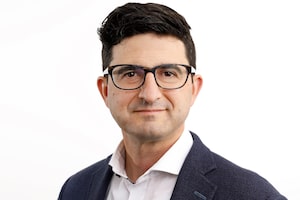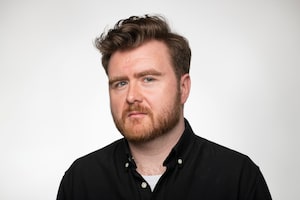Burnaby, B.C.-based General Fusion has raised more than US$200-million since 2002 from investors including Jeff Bezos of Amazon.Reuters
General Fusion Inc., a B.C. company backed by Jeff Bezos, has raised US$65-million to build a prototype plant in its quest to prove that nuclear fusion energy can be a commercially viable, carbon-free source of power.
Singapore-based sovereign wealth fund Temasek led the financing, announced Monday, which brings the amount the Burnaby, B.C.-based General Fusion has raised since 2002 to more than US$200-million from investors including Mr. Bezos, the billionaire who founded Amazon.com Inc. The funding is tied to $50-million the federal government committed to the project a year ago.
Traditional nuclear reactors rely on fission – splitting the nucleus of atoms in elements such as uranium or plutonium – to generate energy. Fusion does the opposite; in General Fusion’s case, it wants to fuse heavy hydrogen atoms into helium, as happens in the middle of a sun, a process that can reach tens of millions of degrees Celsius. Oddly, that gives Burnaby the unusual distinction of hosting one of the hottest places in the solar system and one of the coldest: the city is also home to quantum-computer developer D-Wave Systems Inc., which supercools its chips to a fraction above absolute zero.
Fusion research is costly and time-consuming; scientists have spent decades trying to build systems that safely create more energy than they consume. Even the plant General Fusion plans to build will take five-plus years to design, build and test, chief executive Christofer Mowry said. He said the new funding will only finance the start of its commercialization plan; the company will need to at least double that to reach the finish line, “but it’s plenty to get us started and take us a long way down the program."
Roughly two-dozen startups are now developing fusion energy projects “which means more and more people believe this is a viable option for carbon-free energy,” said General Fusion board observer Geoff Catherwood, a partner with Business Development Bank of Canada’s industrial, clean and energy technology venture fund, an early investor. “They’re still five years away from proving the technology – but if proven, it’s a trillion-dollar market and could literally save the planet.”
General Fusion’s approach involves injecting hydrogen fuel into a molten lead-lithium sphere. Pressure on the sphere can force fusion reactions within the fuel, releasing heat into the liquid metal that can be converted into electricity.
“We’re not trying to prove that fusion works,” said Mr. Mowry, a global energy-industry veteran who previously oversaw hydro and nuclear power projects. “Fusion does work. We’re trying to prove our approach is something that is practical and can be translated into an economically competitive power plant with a machine that is durable, can last for decades and have economics that can compete with coal for power production.”
He said the company has proven the various components of its system work by drawing on recent advances unavailable to the field’s pioneers, including powerful computers and 3-D printing. "What we need to do now is scale it up and build an integrated version of this thing at power-plant-relevant scale.”
“Fusion was a hard sell within investment circles as short as two years ago,” said Zoltan Tompa, director of BDC’s clean technology practice. “Hopefully this ushers in a new trend” of mainstream investors funding fusion, he said.
“They’re moving faster than some of the other fusion companies … and making more strides toward actual mass production,” Bryan Vogus, senior director with General Electric Co.’s “additive sales” division and a supplier for the test plant project, said in a recent interview.
General Fusion’s hydrogen fuel comes from separating hydrogen from water through electrolysis and further separating out the heavier hydrogen, which contains an extra neutron. One litre of this fuel, Mr. Mowry said, could generate as much as 50,000 barrels of oil, enough to heat 10,000 homes for a year.
General Fusion is one of several high-profile startups in the Vancouver area tapping not just software, but physical science, to try to achieve monumental advances and create commercial success – all heavily financed by deep-pocketed global investors including Mr. Bezos and Bill Gates. Others include D-Wave, agriculture clean-tech firm Terramera Inc. and Squamish’s carbon-dioxide-capturing Carbon Engineering Ltd.
 Sean Silcoff
Sean Silcoff Josh O’Kane
Josh O’Kane